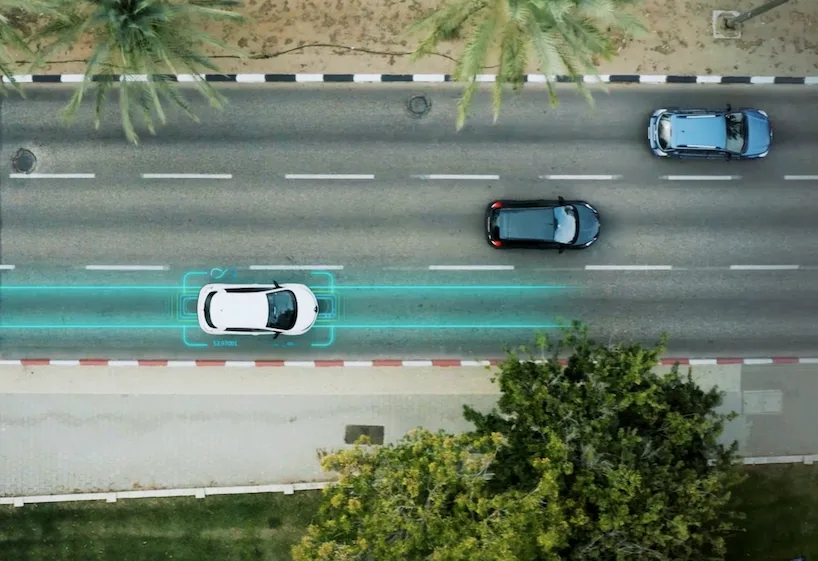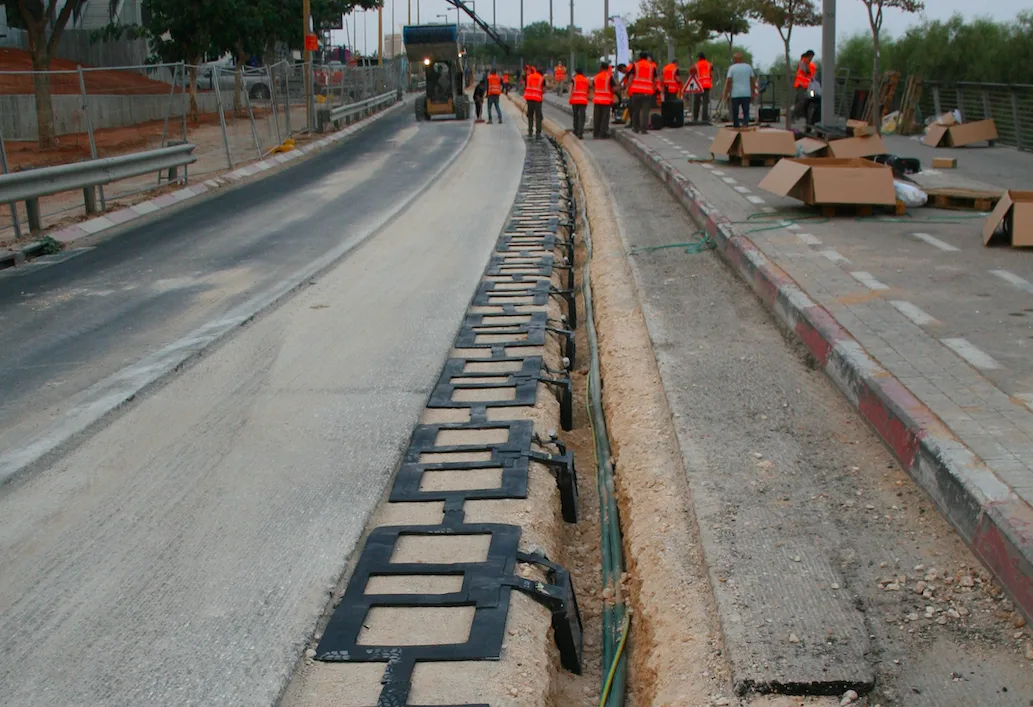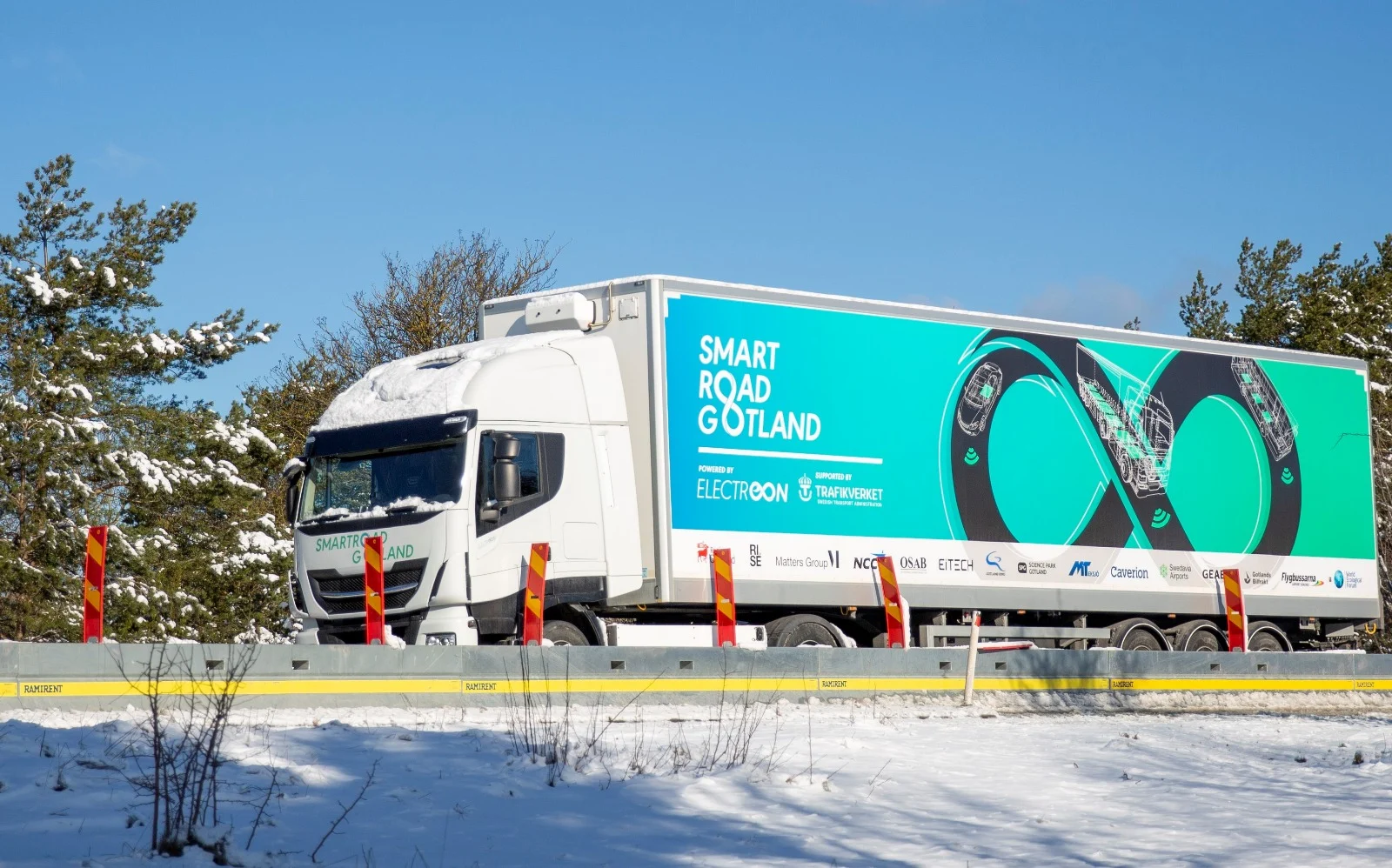
Lacking EV charging stations? This startup's solution: Charge the road instead
Israeli company Electreon says pilot projects in Israel and Sweden had shown promise so far.
You can’t have electric vehicles without a sprawling network of charging stations, so the logic goes. But as some jurisdictions work to expand the network, there may be an alternative: Forget charging the cars – charge the road instead.
That’s the philosophy at Electreon, an Israeli startup that champions using copper coils embedded within the road pavement itself that would interface with modified EVs, charging them as they go.
“EVs using electric roads can have much smaller batteries and never need to stop for charging, so they have better function then any other type of vehicle,” Noam Ilan, Electreon’s VP of Business Development, told The Weather Network.

Construction workers install copper coils within the road along the route of Electreon's pilot project in Tel Aviv-Yafo, Israel. Image: Electreon.
The technology isn’t only theoretical, and Electreon can point to two pilot projects as a practical proof-of-concept for skeptical planners.
The first, in the Israeli municipality of Tel Aviv-Yafo, involves an electric bus on a two-kilometre route between Tel Aviv University and a nearby train station, of which 600 metres is electrified. Run in conjunction with Israel transit company Dan, the first few hundred metres has been installed, and regular routes will begin in the coming weeks.
The other case study, involving an electrified airport shuttle and a truck on the Swedish island of Gotland, runs along the route between the town of Visby and its airport, a four-kilometre round trip of which 1.6 km is electrified. After a trial run last winter, a more comprehensive test is planned for this fall.
“The project in Gotland already went through winter and is functioning very well. There should be no issue with snow or anything else besides metal that can interfere with the energy transfer,” Ilan says.

Electreon's Swedish pilot program involves an electrified airport shuttle and a truck on the Baltic island of Gotland. Image: Electreon.
Once installed, the first users of a hypothetical expanded electrified road network could be public transit and delivery trucks, with other kinds of EVs being added as time passes, as is the long-term vision for the Tel Aviv project. If it takes off, Electreon says the benefits go beyond simply cutting down on emissions.
For a start, the technology would require “minimal” battery size, reducing the need for their component rare minerals, which are hard to supply and whose extraction is damaging to the environment. And not only would EVs be able to dispense with lengthy recharge times, they’d be lighter, cutting down on wear-and-tear.
It would also essentially use existing infrastructure, and eliminate “range anxiety,” which can put off EV-curious buyers who want a zero-carbon vehicle but are concerned about the limitations of the charging network.
Ilan does note, however, that in its present stages, the technology requires investment. The Tel Aviv project is going ahead with some US$5.4 million (CA$ 7 million) in funding from the Israeli government and Electreon’s bus company partner, while the Swedish government is footing most of the US$12 million (CA$16 million) bill for the Gotland project.
“The main challenge is just to get to the market since those are very large projects and we need to work with governments and cities,” he says.

